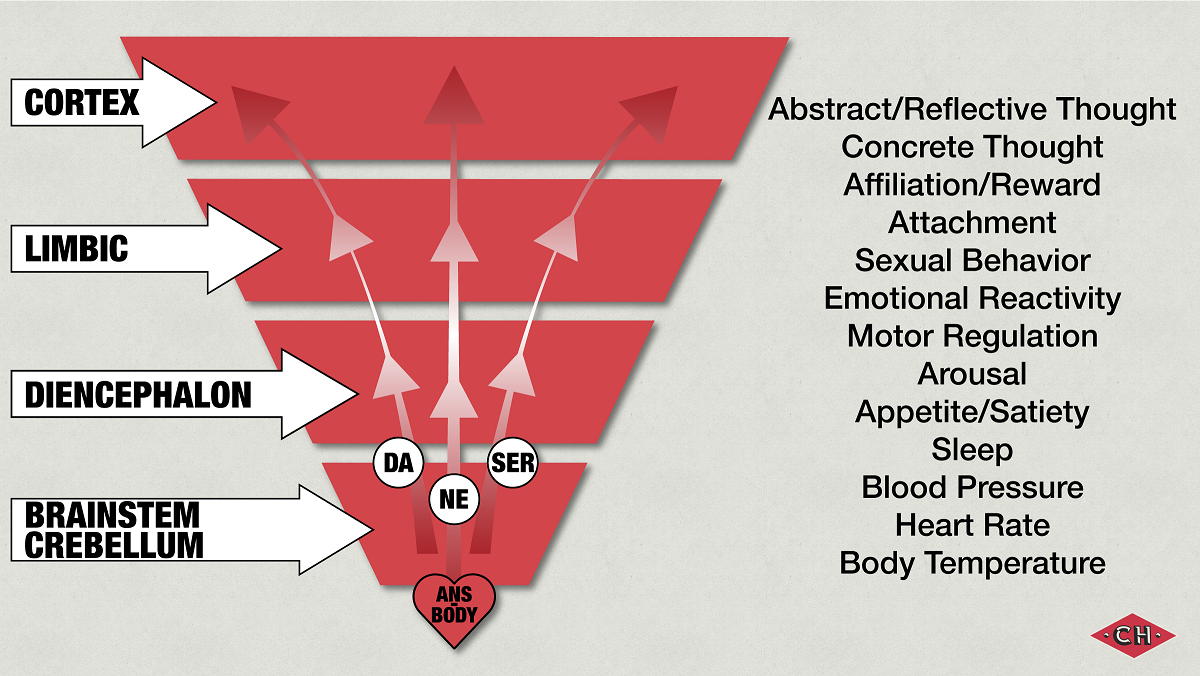Understanding the Impacts of Emotional Trauma

A Book Review of and Takeaways from What Happened to You? Conversations on Trauma, Resilience, and Healing
During the past 20 years, science and new discoveries have advanced our collective knowledge in previously unimaginable ways. Every now and then, some of that knowledge reaches up to smack us across the face as if to say, “Pay attention now because this is important.” That is how I felt after finishing Dr. Perry and Oprah Winfrey’s new book What Happened to You? Conversations on Trauma, Resilience, and Healing. It’s the most revelatory and impactful set of “new” knowledge I’ve absorbed in the past 10 years, and I highly encourage you to read it cover to cover. It will change your view of the world.
When someone works with enough people, they begin to see patterns and behaviors that appear less than rational. This often confuses the observer and leads them to question their understanding of human behavior. This was my starting point for diving deeper into the long-term impacts of trauma, and What Happened to You? was an excellent foundational resource.
This article is part book review and part call to action to help you expand your understanding of trauma, how it shapes us, and its impact upon the world. What I’m sharing is based on cutting-edge neuroscience research. I encourage you to set aside any biases you may have — including the prevalent attitude among many hard-chargers against what they perceive to be “snowflake culture.”
Finally, please note that I am not a trained psychiatrist, psychologist, or therapist. Nothing within this article should be construed as medical advice from an expert — because I am not a physician or traumatologist. What I am, however, is someone who works with a great many people and hopes that this article will increase awareness of critically important knowledge.
Let’s begin.
Everything Matters
“Everything matters. Everything that’s ever happened to you, ever happened to your mother, ever happened to the mother before her, and to the father, and so on – everything matters.” ~ Oprah Winfrey
Oprah’s statement hits it out of the park. Every human’s present state of being is shaped by their past — including that which came before them. Unfortunately, a great many people’s pasts have been impacted by varying types of trauma — either physical or emotional.
For most of us, our society’s understanding of trauma begins with either physical trauma (accidents, injuries, combat, etc.) or, in the case of children, some type of traumatic abuse. Most of us have also heard of PTSD (post-traumatic stress disorder), which is a way that combat trauma often manifests. Unfortunately, there are many more sources of trauma, and a great many are emotional. The earlier that trauma occurs during a person’s brain’s development, the greater its potential impact upon that person later in life.
When trauma occurs — especially during youth — it has an outsized impact upon the brain. The trauma imprints deeply upon the brain and alters the body’s core regulatory systems in such a way that those with trauma regularly experience what’s called “dysregulation.” Dysregulation hijacks the brain’s ability to function at a higher level, reducing IQ, and potentially leading to self-defeating behaviors including but not limited to:
- eating disorders
- alcohol and drug use
- fear of intimacy
- self-sabotage of intimate relationships
- sexual affairs
- compulsive exercise
- addiction to work
Other symptoms might include depression, anxiety, chronic pain, “brain fog,” and low self-esteem.
And there are many more symptoms and behaviors resulting from trauma than those listed above.
For anyone who’s worked with veterans suffering from PTSD, some symptoms on this list may seem familiar. Yet the majority of trauma doesn’t present as PTSD — even though there may be similar behaviors or symptoms common to trauma sufferers (those who’ve served in the military and those who have not).
This graphic helps to explain not only how your brain functions but also issues that arise from dysregulation. Note that while information enters through the brainstem, your cortex is where higher-level functions occur. During periods of dysregulation, access to the cortex is severely curtailed and lower-level portions of the brain take over.
Another key takeaway from What Happened to You? is that many who have suffered trauma do not realize it or, at the very least, do not connect their symptoms or behaviors to the trauma. This is one of the true tragedies as most trauma sufferers continue to live their lives without a clear understanding of the cause of their suffering,
Fortunately, Perry and Winfrey’s book delves into a myriad of trauma-related topics, science, and stories that readers will find useful. This includes ways trauma sufferers can help their bodies regulate, potential therapies, and an explanation of how a trauma-focused view of the world might enable us to build a better society.
What Happened to You?
One of the most important aspects of the book is driven by the fundamental question posed by the title. If you allow it to, this fundamental question will shift your worldview.
When confronted with someone’s non-rational behaviors and inexplicable symptoms, don’t consider it from the viewpoint of “What’s wrong with you?” Instead, approach the issue with the question “What happened to you?” Asking “What happened to you?” not only removes implied judgment, but it also opens new possibilities for a conversation — and possibly resolution.
What Happened to You?, though it is informative and heavy with fundamental neuroscience, is not a science textbook. The stories woven into it make it extremely approachable, conversational, and balanced. The book kept me engaged from start to finish. I believe it may very well be the beginning of a new era of how we approach, understand, and treat a great many problems present in our society.
I encourage everyone to pick up a copy of What Happened to You?. After you finish it, consider rethinking the way that you relate to the world. For those who wish to go deeper, I also recommend another fundamental book on trauma called The Body Keeps the Score. I think you’ll discover that reading both (or just one of them) will change your perspective for the better.

